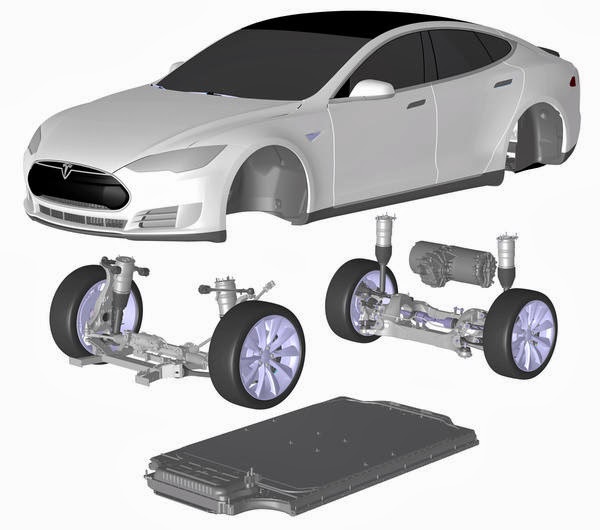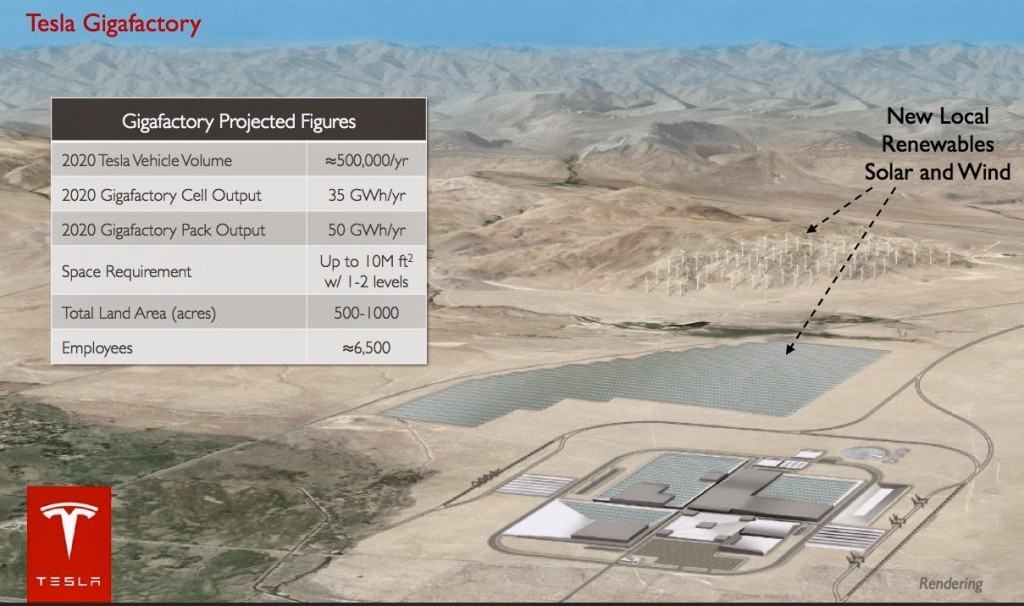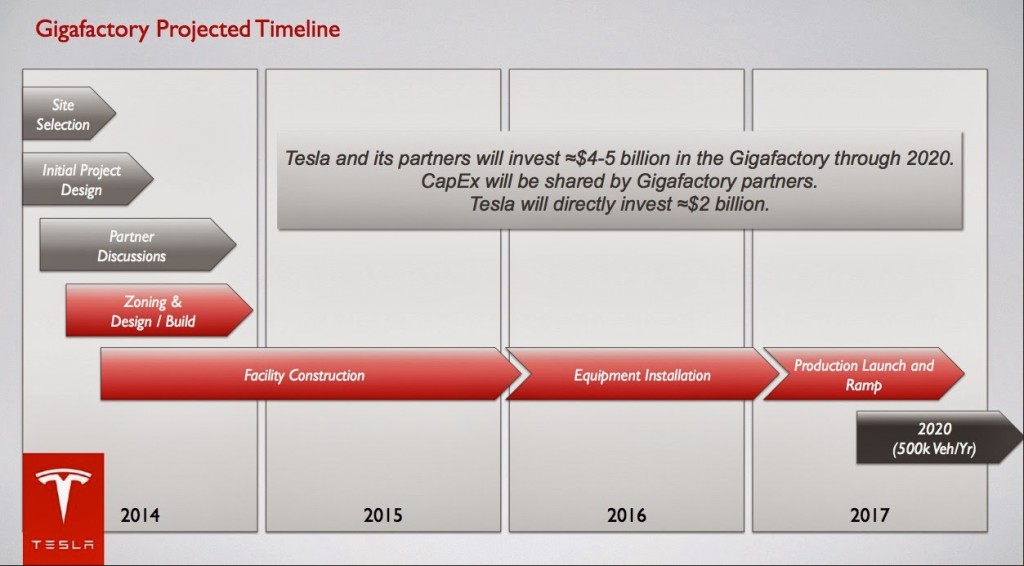Supposedly California is out of the running for the Tesla Gigafactory, but according to a Sacramento Bee article![]() the state is working to get Tesla Motors to change their mind. Most of the article is spent on government subsidies trying to paint Elon Musk as being a Billionaire solely because of government subsidies. Oh, and therefore, Musk’s Tesla Motors somehow owes it to California to build the Gigafactory in California, because the state has done so much to help Tesla as a company and Musk personally.
the state is working to get Tesla Motors to change their mind. Most of the article is spent on government subsidies trying to paint Elon Musk as being a Billionaire solely because of government subsidies. Oh, and therefore, Musk’s Tesla Motors somehow owes it to California to build the Gigafactory in California, because the state has done so much to help Tesla as a company and Musk personally.
Did Elon Musk become a billionaire because of government subsidies? Nope. That was bestowed upon him when he sold Paypal to eBay. Paypal’s success did not come at the hands of government subsidies, but instead by running a very solidly designed and useful business. A business that is a model of usefulness, and which eBay has managed to nurture as an operation that’s extremely useful for all kinds of business, not just as a payments processing operation for eBay.
Microsoft could learn a thing or two about being the steward of a broadly useful company, while incorporating that company’s service into their own. i’m thinking of Skype and how Microsoft is beginning to ruin Skype by essentially forcing Skype users to sign up for Microsoft accounts. But this is a digression so let’s get back to Tesla and the Gigafactory.
The SacBee article has a useful list of trivia about subsidies Tesla has received from California in particular. A third of Tesla’s sales in 2013 were in California, meaning a big pile of the California ZEV rebates went to Tesla Model S owners. And there’s the matter of factory upgrades at Tesla’s plant in Fremont, sales tax breaks on manufacturing equipment purchases, and more. That’s a big pile of subsidies.
Supposedly, according to the SacBee columnist, this somehow entitles California to expect the Gigafactory will be built here rather than Arizona/Nevada/New Mexico/Texas.
Therefore, Sen. Diane Feinstein talked with Elon Musk, and Gov. Brown’s GO-Biz team is also talking with the company. Reading between the lines, Tesla may be playing the states off against each other to see which will offer the most lucrative deal. If true, this is typical Business As Usual, because business owners routinely horse trade factory locations for government subsidy packages.
Initially, Tesla Motors said that California wasn’t in the running because the cost of doing business here is too high. That may be, it’s certainly very expensive to live in the SF Bay Area. But cost of living is cheaper in the Central Valley, and as the SacBee article points out there’s a high unemployment rate there. The Drought is going to hit California’s agriculture sector hard this year, I’d imagine.
Tesla Motors is under the gun to get this Gigafactory under construction as soon as possible. The gigafactory is required for for mass volume manufacturing of the “Model E” (or whatever they end up naming the 3rd generation car), because of the sheer volume of batteries that’ll be required. The factory doesn’t exist yet, and has to be built and functioning in less than two years, to meet deadlines required to get that car into production by 2017. Tesla’s timeline was they want to select the location essentially NOW, and start construction in a couple months.
- Highway design could decrease death and injury risk, if “we” chose smarter designs - March 28, 2015
- GM really did trademark “range anxiety”, only later to abandon that mark - March 25, 2015
- US Government releases new regulations on hydraulic fracturing, that some call “toothless” - March 20, 2015
- Tesla Motors magic pill to solve range anxiety doesn’t quite instill range confidence - March 19, 2015
- Update on Galena IL oil train – 21 cars involved, which were the supposedly safer CP1232 design - March 7, 2015
- Another oil bomb train – why are they shipping crude oil by train? – Symptoms of fossil fuel addiction - March 6, 2015
- Chevron relinquishes fracking in Romania, as part of broader pull-out from Eastern European fracking operations - February 22, 2015
- Answer anti- electric car articles with truth and pride – truth outshines all distortions - February 19, 2015
- Apple taking big risk on developing a car? Please, Apple, don’t go there! - February 16, 2015
- Toyota, Nissan, Honda working on Japanese fuel cell infrastructure for Japanese government - February 12, 2015












